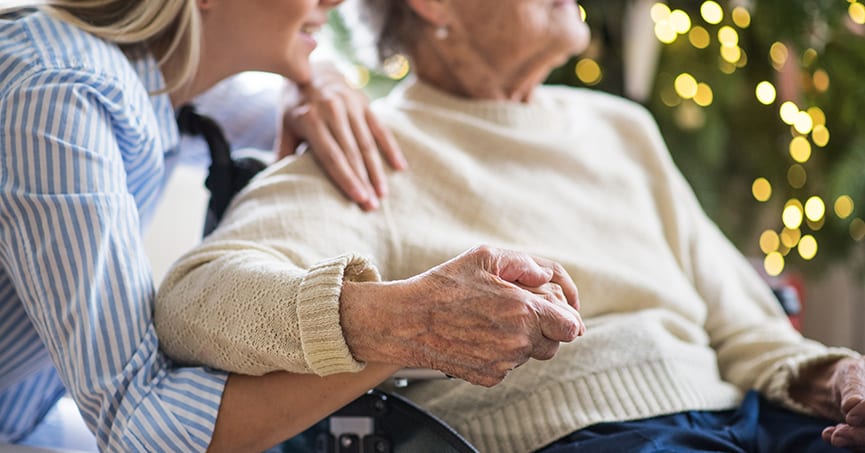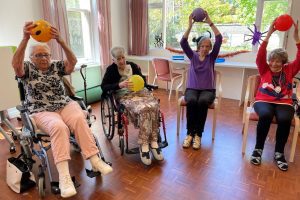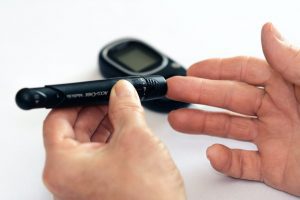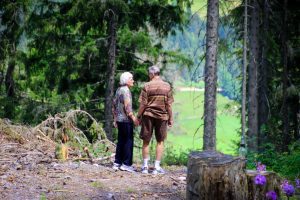Advice to informal carers of an elderly person amidst the coronavirus outbreak

The coronavirus is a frightening pandemic that has hit the UK’s doorstep. With the virus being particularly dangerous for elderly people, the government released social distancing advice on Monday 16th targeted specifically towards elderly people.
As an informal carer, there are steps you can take to ensure your elderly loved one remains as safe as possible:
Only access reliable information about coronavirus
It is vital that you advise your loved ones to only access information from the likes of the NHS, the World Health Organisation, gov.uk and reliable news sources (all of the information on this page comes from these sources). This will not only reduce the chances of misinformation being followed, but it may also keep concerns or fears at a reasonable level.
Education on coronavirus is essential
The coronavirus is monopolising a lot of conversation at the moment. However, it is worth ensuring that your elderly loved one understands what the virus is, the symptoms, and how it is spread.
What is coronavirus?
A coronavirus belongs to a large family of viruses impacting animals and humans. A coronavirus can cause respiratory infections spanning from a common cold through to severe diseases.
The current coronavirus is the COVID-19, which was first reported in Wuhan last December and was recently given ‘pandemic’ status by the World Health Organisation.
How is coronavirus spread?
This is a new strand of coronavirus; therefore, research is still taking place regarding spread. However, currently, the following is understood:
Coronavirus is spread from someone who has contracted COVID-19 to someone else via coughing or simple exhaling. Droplets from these actions are then breathed in by the healthy person, passing the virus to them.
If these droplets fall onto a surface that is touched by someone who does not have the illness, and they then touch their eyes, nose or mouth, they can also contract it.
What are coronavirus symptoms?
The NHS specified that COVID-19 symptoms include:
- A high temperature
- A new, continuous cough
If your elderly family member or friend shows either of these symptoms, they mustn’t visit a pharmacy, GP surgery or hospital. Instead, they should stay at home for a minimum of seven days.
If your loved one does contract the virus and reaches a point where:
- They cannot cope with the symptoms
- The condition worsens
- The symptoms do not go away after seven days
they should call 111.
Reiterate good hygiene
Elderly people must continue to invest in excellent hygiene practices to help protect them from contracting coronavirus. These include:
- Washing their hands using soap and water. This should be done often, particularly when out and about and for at least 20 seconds.
- If they aren’t able to wash their hands, they should use hand sanitiser until they can.
- If they cough or sneeze, they should use a tissue or their sleeve. If using a tissue, it should be thrown away in a closed bin immediately, and they should wash their hands.
- They should avoid contact with anyone unwell, particularly individuals showing symptoms of coronavirus.
- They should refrain from touching their nose, mouth or eyes; especially with unclean hands.
Check supplies
While there is a lot of coverage showing empty shopping shelves, there is no need to bulk buy. Shops will restock and if a particular item is needed sooner, perhaps look into a local independent shop as these may have additional stock.
Instead of bulk-buying, keep an eye on food and hygiene supplies, and replenish these as and when needed.
Be aware of coronavirus scams
Sadly, there are instances where people have pretended to be connected to the WHO (World Health Organisation) to steal sensitive information and money.
The WHO has released information regarding scams taking place, along with an outline of how your loved one can spot a scam. It is worth informing your elderly friend or family member of the situation and showing them the advice so that they can stay safe.
Keeping sensitive and financial information safe
Contact may be made via email, phone, fraudulent websites, text messages and in some cases, fax to carry out a scam.
- Take your time if you are contacted by someone claiming to be from the World Health Organization. If your personal information is requested, contact the WHO directly to confirm.
- If you have received an email, check that the link begins with ‘https://www.who.int’. If it does not, ignore the email and report it to the WHO. Do not click on the link.
- Similarly, review the email address of the sender. If it does not end with @who.int, then the email is not associated with the WHO.
- Never open a link, attachment or offer sensitive information such as any usernames or passwords without contacting the WHO yourself and talking to them first.
The WHO has only made one request for donations. This is called the COVID-19 Solidarity Response Fund; therefore, any other requests for money from a ‘World Health Organisation representative’ should be ignored and reported to the WHO.
A note to informal carers of an elderly person
For those who undertake care responsibilities of an elderly person, the idea of having to self-isolate from them can be both frightening and stressful. However, if you come into contact with someone who is sick; you must isolate yourself.
If that does happen, it is essential that your loved one still receives the care they need while you get better. If you need to invest in elderly care in the short-term, ensure that care information is easily accessible. It would be helpful to have an emergency care plan available regardless of whether you are feeling ill. This emergency care plan should include:
- Guidance on medication including what is needed, how much and when
- A list of any contact numbers that may be required
- An outline of any medical conditions and allergies
That way, a care provider can refer to the information as and when required. This will relieve any pressure you may feel so that you can focus on getting better.
We appreciate how frightening the coronavirus is; however, some steps can be taken to reduce the risk to the elderly, and support can be available should you be caring for an elderly person and have to self-isolate.
If you’d like to invest in professional elderly care to help yourself and your loved one through these difficult times, use the links below to learn more about the support we offer across the country.
Or view all the locations we operate in here.




